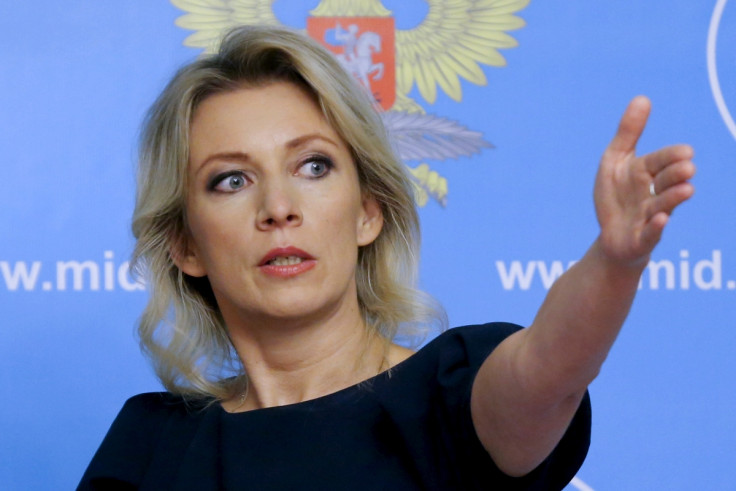Litvinenko inquiry: Russia warns verdict will 'darken' relations with UK

A British tribunal's verdict that Russian President Vladimir Putin "probably" ordered the poisoning of former KGB spy Alexander Litvinenko in London has "darkened" Russian-UK relations, Russia's Foreign Ministry said.
In a statement, Foreign Ministry spokeswoman Maria Zakharova said: ""We regret that a purely criminal case has been politicised and has darkened the general atmosphere of our bilateral relations.
She said that the public inquiry had a "clear political subtext", and criticised the fact that some of the evidence had been heard in closed session.
"Taking this into account, there were little grounds to expect that the final report of a process that was politically motivated and highly opaque, and prepared with a pre-determined 'correct' result in mind, would suddenly turn out to be objective and balanced," she said.
The inquiry report found that Litvinenko, who died in a London hospital in 2006, was killed by Russian agents Andrei Lugovoi and Dmitry Kovtun, who poisoned his tea with with radioactive polonium-210.
Inquiry head Sir Robert Owen concluded that there was a "strong probability" that the killers acted on the orders of Russia's FSB security service, and that the agency's then chief, Nikolai Patrushev and President Putin "probably approved" the killing.
Lugovoi, who is now an MP with a nationalist party in Russia and hosts his own television show, described the findings as "absurd".
"As we expected, there was no sensation. The results released on 21 January just show London's anti-Russian position once again; the narrow-mindedness and lack of desire among the British to find the real reason for the death of Litvinenko," he said in a statement.
"The 2014 events in Ukraine, which coincided with the resumption of the investigation into the Litvinenko case even though previously it had been declared secret, look like a pathetic attempt by London to use a 'skeleton in the cupboard' to support their political ambitions. I hope this 'polonium process' will once and for all dispel the myth about the impartiality of British justice."
Both Lugovoi and Kovtun deny the charges, and Russia has refused to extradite them to the UK.
An unnamed government official speaking to Russia's RIA state-owned news agency reiterated Russia's claim that the tribunal was "illegitimate" and predicted "serious consequences" for Russia-UK relations.
On his deathbed Litvinenko told police that Lugovoi and Kovtun had killed him, and had acted on Putin's orders. Litvinenko made a series of personal attacks on Putin after claiming asylum in the UK in 2000, including an accusation that he was a paedophile.
In his findings, Sir Robert said there was also "undoubtedly a personal dimension to the antagonism" between Putin and Litvinenko.
Tony Brenton, who was British ambassador to Russia at the time of the killing, said on the BBC's Radio 4 "tearing up" diplomatic relations with Russia was "not in Britain's interests".
"We have quite important other fish to fry with the Russians. They are very important in carrying the Iran de-nuclearisation through, they are absolutely crucial in sorting out the mess in Syria."
© Copyright IBTimes 2025. All rights reserved.




















